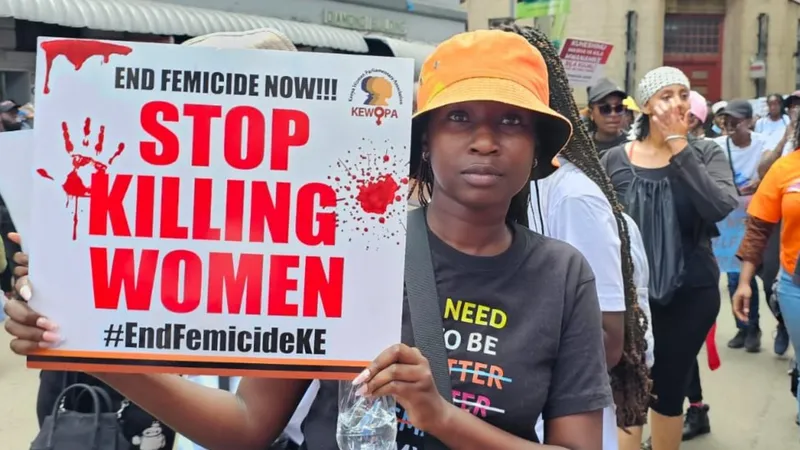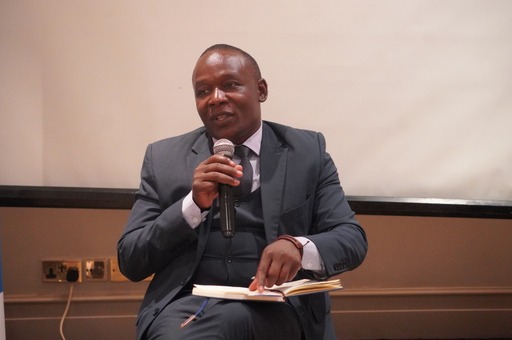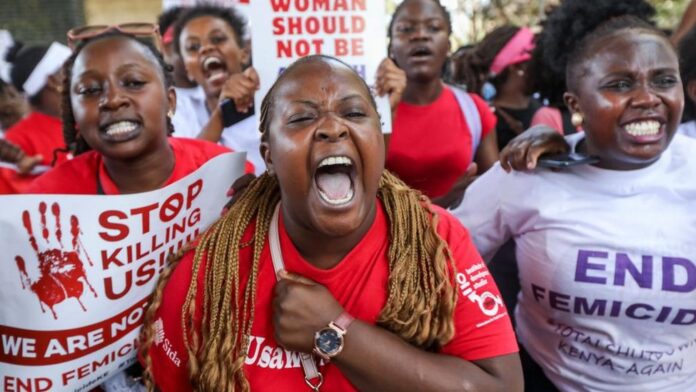By Melisa Mong’ina
Nairobi, Kenya: Kenya has experienced a significant rise in femicides this year, with numerous young women losing their lives under unclear circumstances. Globally according to Womankind Worldwide, 81,000 women and girls were killed in 2021, around 45,000 of them (56%) died at the hands of an intimate partner or a family member.
Police in Kenya reported in the media that in the last 3 months almost 100 women have lost their lives to femicide incidents.
The justice system has deeply failed these women, leaving them feeling neglected by the government. As time goes on, these survivors hold onto the hope that justice will be served and the government will step in to offer the protection they desperately need.
Many Survivors are left living in fear due to the absence of justice, yet their perpetrators are still roaming around freely, threatening to further harm them.

We met up with Hope, whose real identity remains confidential due to her safety, her path to healing has been a rollercoaster of pain, emotions, and failed systems. Her resilience story came with a lot of pain in her heart because of the justice she lacked after being emotionally and physically tortured.
“My story started last year, around 18th December 2023,” she shared with a deep tremor in her voice. “I was threatened that I was going to be killed. I reported the matter to the police station, and the perpetrator was arrested. He was released after two weeks, and the police never followed up on the case.”
The horror didn’t end with his release. On 18th January 2024, one month later after the threat, the man came back and violently attacked her with a knife at her gate as she was heading to work.
“One month later, as I opened the gate heading to work at around 6:30 am, he was waiting for me while holding a knife and he stabbed me,” she narrated with so much pain in her voice. “My kidney and my liver were also stabbed. I found myself at the ICU.”
Despite the brutal attack, the man was once again released, with no communication from the authorities about his release. As if the attack wasn’t enough, he again threatened Hope, causing her to abandon everything for her safety since she didn’t have anybody to protect her.
“The sad thing is that the man is out, and nobody informed me about it. He again started threatening me, so I had to hide. I could not stay in my house nor go to work. He threatened to finish me off,” Hope explained with so much pain.

“The authorities didn’t help me and when they asked for a lawyer, I didn’t have one. During the hearings, it felt like they were victim-blaming me. Sometimes, I felt that he had more rights than I did.” she narrated in pain. “They always requested a date that he was comfortable with, but nobody ever bothered to ask me. I was there on the 4th of December, and it was postponed to the 20th of January 2025.”
She not only faced physical pain but also psychological, and none of the cases have put the perpetrator behind bars. He is roaming around freely while the victim is in hiding.
“I have two cases with the man; the one on threats and the attempted murder. The most painful thing is that he’s out there enjoying life while I have to stay in hiding. I feel like I don’t have rights in this country,” she stated with a breaking voice.
Hope’s story is a painful reminder of the ongoing fight against gender-based violence in Kenya and across the world. It highlights the brokenness of systems meant to protect survivors and the daily struggle faced by those who, despite their resilience, remain vulnerable.

Martin Onyango, Lawyer at Centre for Reproductive Rights (CRR), acknowledged the significant challenges faced by those seeking justice within the legal system, highlighting the discouraging reality that even lawyers, when overwhelmed, may abandon cases and advise clients to seek another lawyer.
“If you are seeking justice, you will give up. I mean, if lawyers can give up and abandon files and say, look for another lawyer I can’t cope,” he said.
Further, he emphasized the need for a collaborative approach between the courts and Parliament to ensure justice is effectively carried out. Holding both the legal system and lawmakers accountable is crucial to identifying gaps and ensuring that laws are put into practice.
“Let us question the efficiency of those systems, even if it means having strategic cases just on how ineffective the systems are and if necessary, let us then get deliberations that will inform both changing law and changing practice,” urged Onyango.
He praised the media and legal advocates for their roles in holding the government accountable and encouraged collaboration between these groups to amplify their efforts and push for systematic change.
“We are lucky that those in the media have a bigger voice and bigger space. Those who are in legal advocacy, you can generate the content, and we have an outlet, so that we have an organized method of holding the government accountable,” he stated.














